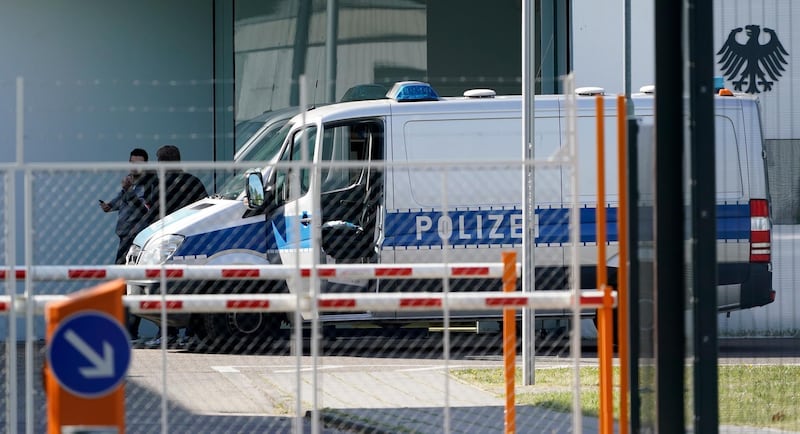Police in Germany have arrested five Tajik nationals on suspicion that they were members of an ISIS terror cell that had been planning attacks on US forces stationed in Germany, prosecutors said on Wednesday.
Prosecutors said the men joined ISIS in January 2019 and were instructed to form a cell in Germany.
They reportedly first planned to carry out an attack in Tajikistan but later shifted their target to Germany, including US Air Force bases in the country, after instruction from high-ranking ISIS figures in Syria and Afganistan.
The five were also allegedly planning attacks on individuals they deemed critical of Islam, prosecutors in the city of Karlsruhe said. The group had already begun spying on a potential target.
Two of the suspects are also accused of accepting a $40,000 contract for an assassination in Albania
Four of the suspects were arrested after dawn raids on Wednesday targeting several apartments and six other locations in the western state of North Rhine-Westphalia.
They were named as Azizjon B., Muhammadali G., Farhodshoh K., Sunatullokh K. and Ravsan B. The men's alleged leader, a 30-year-old Tajik man identified only as Ravsan B., has been in jail since March 2019 on unspecified charges.
Germany's security services estimate there are around 11,000 radicals in the country.
It has been hit by a string of extremist-led attacks including a lorry rampage through a Berlin Christmas market in December 2016 that left 12 people dead and was claimed by ISIS.
On Tuesday, EU crime agency Eurojust revealed it was dealing with 14 per cent more terror related cases.
In its annual report it showed the agency had 222 terror cases last year compared with 191 in 2018.
In one case its work with Belgium and Hungary resulted in the apprehension of an Isis extremist who was charged with multiple murders and in another it worked with 12 member states to disrupt the spread of online terror propaganda.
Last year Eurojust created the Judicial Counter-Terrorism Register to share information about terrorists.
It has also been pivotal in bringing experts together to discuss how to deal with foreign terrorist fighters returning to Europe.








